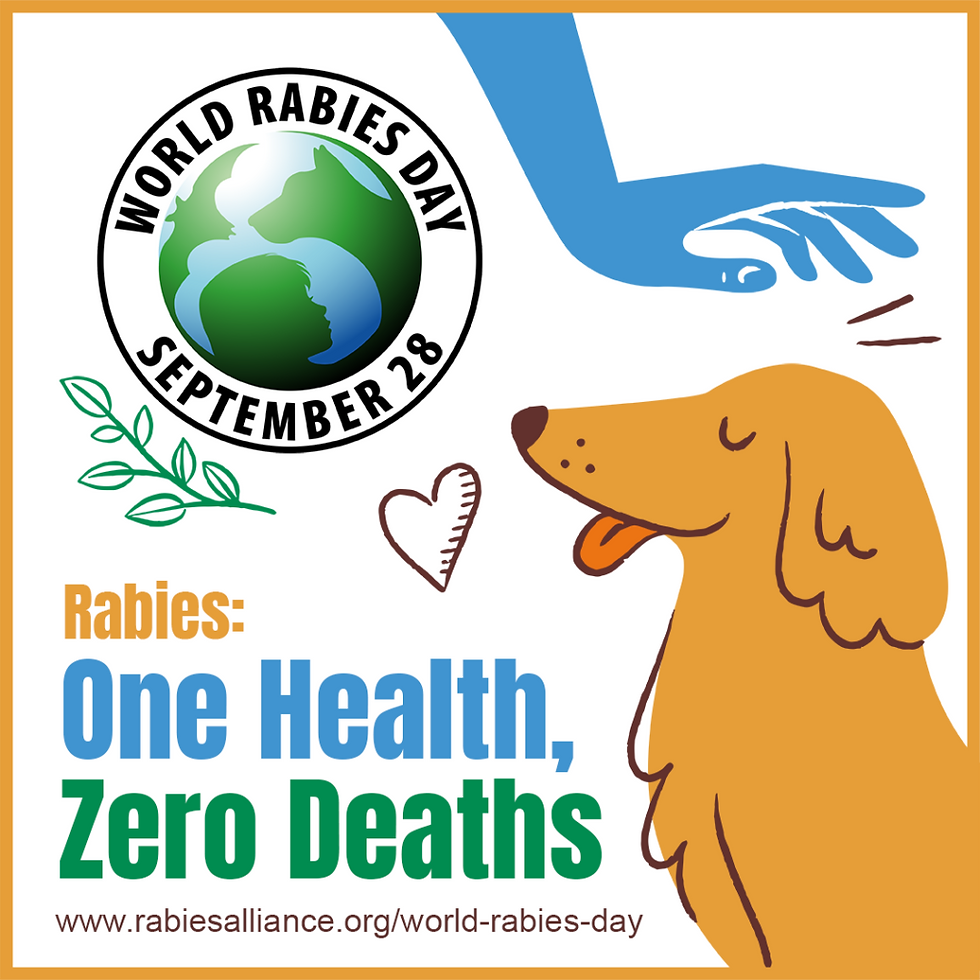What about World Rabies Day?
- Dr Sandy Jameson
- Sep 1, 2025
- 2 min read
World Rabies Day takes place each year on September 28. World Rabies Day was set on this day because it is the anniversary of Louis Pasteur’s death, a key figure in the development of an effective rabies vaccine. The purpose of this day is to promote awareness about the impact that rabies has on humans and animals and to advocate for methods of controlling rabies.

World Rabies Day supports a One Health approach to rabies prevention. One health is a concept that portrays human, animal and earth health as being inter-related. For example, having pet dogs and cats vaccinated for rabies is important for human health as these animals cannot then transmit rabies to people.
Although death from rabies infection in Canada is rare with only one case reported by the World Health Organization (WHO) from 2010-2022, it is much more prevalent in some countries. For example, the WHO reported 305 human rabies deaths in India in 2022. Dog mediated rabies is more prevalent in developing countries, whereas wildlife mediated rabies is more of a concern in North America.
In Canada, rabies is most common in the Arctic fox, bats, racoons and skunks. The Canadian Food Inspection Agency reported that most cases of rabies in 2024 were in bats with 126 cases reported across Canada (5 in Alberta).
Multiple strategies are used to reduce the risk of rabies in Canada. Vaccination of all pets for rabies reduces the risk of wildlife rabies transmission to pets. In some provinces oral rabies vaccinations have been used to reduce the prevalence of rabies in wildlife populations. Although not many humans are vaccinated for rabies, it is recommended for people working in high-risk occupations like veterinarians, hunters/trappers in areas with confirmed wildlife rabies and some travelers.
Dog rabies kills over 50 000 people per year in developing countries. This is an important consideration for dogs that are being rescued from outside of Canada and the reason why importing dogs from high-risk countries is currently prohibited.
Your veterinarian is a good source of information for vaccinating your pets for rabies. The Canadian Food Inspection Agency provides useful data about cases of rabies in Canada and regulations around potential rabies exposure. Educate yourself and be safe





Comments